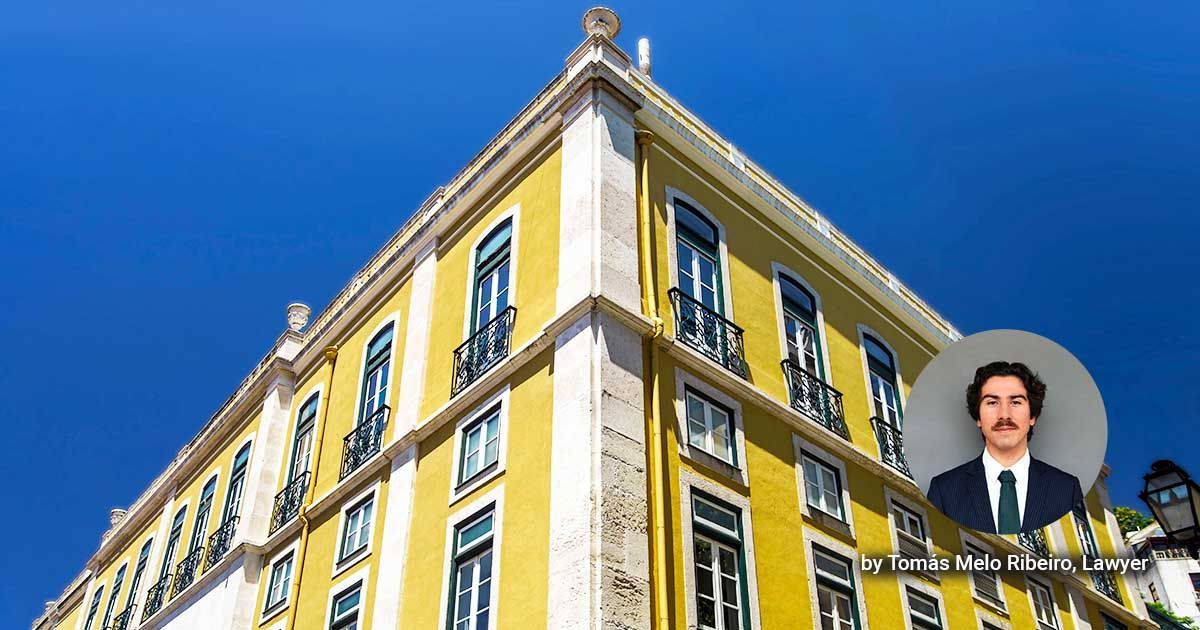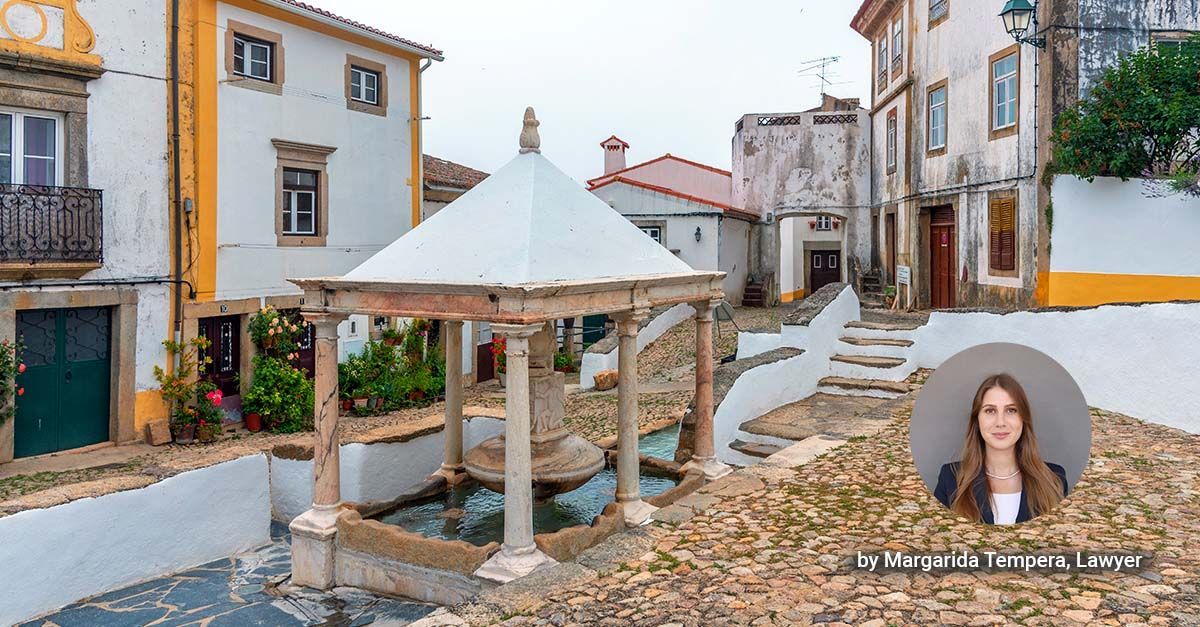From Concept to Incorporation: The D2 Visa and Business Establishment in Portugal

Luís Maria Branco | Lawyer

Tomás Melo Ribeiro | Lawyer
The D2 Visa, commonly referred to as the Entrepreneur Visa, provides a legal pathway for nationals of non-EU, EEA, and Swiss countries to establish a business, pursue entrepreneurial activities, or invest in Portugal. This visa category was designed to attract foreign investment and encourage entrepreneurs, freelancers, and independent professionals to contribute to the national economy.
The present overview provides a comprehensive and structured analysis of the D2 Visa, detailing its purpose, eligibility criteria, application process, and principal advantages for prospective applicants, along with essential information regarding the incorporation of a company in Portugal.
Eligibility: Who May Apply for the D2 Visa
- Entrepreneurs seeking to establish a new business in Portugal.
- Business owners or shareholders aiming to expand their existing operations into Portugal.
- Freelancers and independent professionals intending to provide services and create a professional presence in Portugal.
Eligibility Requirements for the D2 Visa
While specific conditions may vary depending on the applicant's professional profile, the following general requirements are applicable across all categories:
- Business Plan: The business plan is a critical component of the application, detailing the business model, financial viability, and anticipated contributions to the Portuguese economy. Key aspects include job creation, innovation, and market relevance.
- Capital Investment: Applicants must demonstrate access to adequate financial resources to fund their business. Although there is no minimum investment threshold, the capital must be appropriate for the nature and scope of the business. Acceptable sources include personal funds, investment capital, or third-party financing.
- Proof of Financial Stability: Applicants must prove the ability to support themselves and any dependents while residing in Portugal. This is typically evidenced by bank statements, income documentation, or proof of financial assets. A recommended benchmark is a minimum of €12,000 for the applicant, €6,000 for a spouse, and €3,600 per child.
- Professional Qualifications (Freelancers and Independent Professionals): Applicants in these categories must provide documentation proving relevant qualifications and experience, as well as client contracts or service agreements with entities based in Portugal.
- Company Registration: The business must either be fully registered or in the process of registration with the competent Portuguese authorities at the time of application.
- Economic Relevance: The proposed activity must demonstrate a potential economic benefit to Portugal, which may include job creation, innovation, or filling a market need. This is particularly relevant for applicants under the Start-Up Visa framework.
Company formation in Portugal involves several legal and administrative steps. While the process can be managed independently, engaging legal or accounting professionals is recommended for efficiency and compliance.
1. Choose a Business Structure
- Sole Proprietorship (Empresário em Nome Individual): This structure is appropriate for individual entrepreneurs and self-employed professionals who intend to operate independently. It does not establish a separate legal entity, and the entrepreneur assumes full and unlimited personal liability for the business’s obligations.
- Single-Member Limited Liability Company (Unipessoal, Lda.): This form of incorporation is well-suited for entrepreneurs operating individually, without the need for a complex corporate framework. It establishes a separate legal entity and offers limited liability protection, making it a preferred option among freelancers and independent professionals. The sole shareholder is also typically the managing partner.
- Private Limited Company (Sociedade por Quotas - Lda): This is the most commonly adopted corporate structure in Portugal, particularly suitable for small to medium-sized enterprises. Although there is no mandatory minimum share capital, it is advisable to allocate an amount proportionate to the operational requirements of the business. The liability of each shareholder is limited to the value of their respective equity participation in the company.
- Public Limited Company (Sociedade Anónima - SA): This legal structure is generally reserved for larger commercial undertakings, especially those seeking to raise capital through public or private investment, or with the intention of becoming publicly listed. It requires a minimum share capital of €50,000, and the liability of shareholders is limited to the amount of capital subscribed, with no personal liability for the company’s debts.
2. Business Name and Activity
- Select the company’s legal name and clearly define the intended business activity. It is essential to ensure that the chosen name is not already registered. Furthermore, the designated activity must be classified following Portugal’s official Classification of Economic Activities (CAE), and all necessary sector-specific licenses and authorisations must be duly obtained prior to the commencement of operations.
3. Commercial Registration
- All companies established in Portugal are required to be duly registered with the Portuguese Commercial Registry (Conservatória do Registo Comercial). This process entails the submission of the company’s Articles of Association, duly executed by the founding members, along with all other requisite supporting documentation per applicable legal and regulatory provisions.
4. Tax Identification Number (NIF)
- Obtain a tax identification number (Número de Identificação Fiscal – NIF) for both the company and the entrepreneur from the Portuguese Tax Authority, as this is a mandatory requirement for company incorporation, tax compliance, and the execution of various legal and financial transactions in Portugal.
5. Business Bank Account
- Entrepreneurs are required to open a corporate bank account with a duly licensed Portuguese financial institution to deposit the initial share capital, where applicable. This account is essential for the effective management of the company’s financial operations and for conducting all business-related transactions in compliance with national banking and regulatory standards.
- Portugal offers a competitively structured corporate tax regime. The standard corporate income tax rate is 20%, which is relatively low in comparison with many other jurisdictions within the European Union. This favourable tax framework enhances Portugal’s appeal as a destination for foreign direct investment and business establishment within the European single market.
7. Appointment of a Certified Accountant
- It is strongly recommended to engage a certified accountant at the time of incorporation. The appointed professional will be responsible for ensuring that the company complies with all applicable legal obligations, including those related to taxation, financial reporting, and bookkeeping. The involvement of a certified accountant is particularly critical to maintaining ongoing compliance with Portuguese legal and regulatory requirements, thereby mitigating the risk of penalties or administrative sanctions.
8. Beneficial Owner Declaration
- As part of the incorporation process, it is a legal obligation to submit a Beneficial Owner Registration Declaration (Registo Central do Beneficiário Efetivo) to the Portuguese Commercial Registry. This declaration must disclose the identity of the individual(s) who ultimately own or exercise control over the company. The purpose of this requirement is to promote corporate transparency and to support the prevention of money laundering and other illicit financial activities through the clear identification of the company's beneficial owners.
For a more detailed guide on incorporation, you may refer to our article: Establishing a Company in Portugal.
Application Procedure for the D2 Visa
1. Document Preparation. Applicants must compile and submit all necessary documentation, which includes the following:
- Valid passport.
- Portuguese tax identification number (NIF).
- Portuguese business bank account.
- Comprehensive business plan.
- Proof of financial means.
- Proof of accommodation in Portugal.
- Company registration or evidence of active registration process.
- Professional qualifications (for freelancers)
- Valid health insurance.
- Criminal record certificate from the country of nationality and residence.
2. Submission at the Portuguese Consulate. The application must be submitted to the Portuguese consular post with jurisdiction over the applicant’s country of residence.
- The consulate is legally required to issue a decision within sixty working days from the date of submission.
- If the application is approved, the applicant will be granted a visa valid for 120 days, during which they may enter Portugal and attend their scheduled appointment with AIMA.
3. Assessment by AIMA
- Following consular submission, the application is forwarded to the Portuguese immigration authority, the Agency for Migration, Integration, and Asylum (AIMA), which undertakes an assessment of the proposed business plan, the applicant’s financial capacity, and the anticipated economic contribution of the business to the Portuguese economy.
- AIMA is expected to issue a decision regarding the residence permit within ninety working days, provided that the application file is complete and compliant with all legal requirements.
4. Residence Permit Issuance
- Upon approval, the applicant receives a temporary residence permit valid for two years, renewable as long as the business remains active and compliant with the legal requirements.
5. Path to Permanent Residency and Citizenship
- After maintaining valid residence status in Portugal for a continuous period of five years, holders of the D2 Visa become eligible to apply for permanent residency. In addition, applicants may also qualify for Portuguese citizenship, provided they satisfy all legal requirements, including minimum residency periods and proof of basic proficiency in the Portuguese language.
Key Advantages of the D2 Visa
- Entrepreneurial autonomy with no restriction on the business sector.
- No mandatory minimum investment threshold.
- No obligation to create jobs, although it may strengthen the application.
- English is widely spoken in business environments.
- Access to public healthcare and education in Portugal.
- Visa-free travel within the Schengen Area.
- Eligibility for family reunification.
- Pathway to permanent residency and Portuguese citizenship.
- No need for incubator sponsorship, though Start-Up Visa options exist.
Important Considerations
- The process is highly competitive; a well-structured business plan is essential.
- Bureaucratic hurdles may arise, and delays are common.
- Legal assistance is recommended to navigate regulatory requirements and avoid delays.
- Minimum stay requirements must be met to maintain legal residency and qualify for permanent status.
Conclusion
The D2 Visa presents a valuable opportunity for foreign entrepreneurs, investors, and freelancers seeking to establish a long-term presence in Portugal and access the broader European market. While the process requires careful planning and compliance, it offers a flexible and accessible route to residency and citizenship for qualified applicants.
For professional assistance with the D2 Visa or other immigration matters, our team is available to provide guidance and support at every stage of the process.











